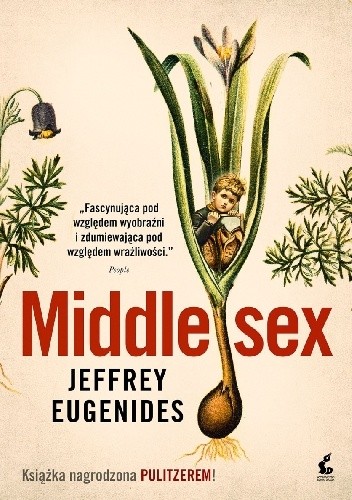
The hyphenated being is the epitome of this Bildungsroman and novel of quest, both forms favored by ethnic literature. 2Ģ Although reviewers, unable to see the connection, found these two levels incongruous, Eugenides bridges this apparent gap by interweaving the strands of gender and ethnicity in the narrative, as his narrator sets out to construct his identity. The novel is about reinventing your identity on different levels, be that Greek to American, female to male, says the author who, digging up his Greek origins, makes an original contribution to the Greek-American novel. Gender trouble in Middlesex could hardly veil the immigrant and ethnic experience in America that spans three generations of a Greek family in the twentieth century.

The Pulitzer-prized writer revisits the myth in a novel way combining it with the aporias of ethnicity. It may be because the Greeks found a mythical way out of the contradictions and the ambiguities that characterize the fragmented human being in search of unity through Hermaphroditus, the figure of an indivisible duality, quite appropriate to express the diverse reality of American unity. If Melville in Moby Dick sets up an anthology of whaling, Eugenides builds his collection of Greekness. Magazine, (.)ġ In his second novel, Middlesex 1, Jeffrey Eugenides is deep in the Greeks. “The Novel as a Mental Picture of its Era,”3 A.M.

Loosely inspired by aspects of Eugenides' life and his Greek heritage, Middlesex is an intergenerational family drama that follows three generations of Greek-Americans descended from a brother and sister who immigrate from their tiny village to Prohibition-era Detroit.

But Middlesex, which was published in 2002 and won the Pulitzer Prize for Fiction in 2003, is far more ambitious and Herculean than his quiet deep dive into the mysteries of adolescence. Eugenides is best known for writing The Virgin Suicides, which went on to become an acclaimed Sofia Coppola film.


 0 kommentar(er)
0 kommentar(er)
